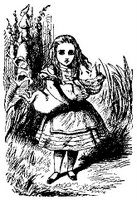
the May 21, 2006 New York Times, which I bought and read while travelling:
Iraqi government, Iraqi police, vulnerable GOP seats;
but not Chinese immigrants' bible study, injured Barbaro or summer travel
Italian soccer, Iranian intellectual, Nepalese Maoists, Palestine, Taliban;
but not Peruvian politics, Myanmar, typhoon
West Virginians, Arizona-Mexico border;
but not summer travel, campus deer or chestnuts
I missed the Columbia fundraising, the Newark article and Kentucky miner disaster the first time through, but I regret this and will try to read all these . . . But I did find the West Point Graduates Against the War.
I found it all rather engaging, the West Virginia and Italian Soccer things less so than the rest. Despite daily efforts, I find it hard to read the NYT online. I feel like the news turns into bullet points that way, and there isn't the dialectical play of argument that the actual paper gives me access to. Or creates in my head. Or something . . . The Week in Review was weaker than I remember it being. Maybe the Saturday Week in Review is usually better? Actually, I really liked the immigration article and the companion "In the Back Door, Out the Front." I looked only briefly at the Hussein trial thing.
I liked the profile of New York real estate investor Joseph Moinian on the back of the business section. I'll probably read the thing on Greenspan.
I read none of the Book Review.
Ben Brantley had some interesting thoughts on nostalgia and the Broadway musical . . . John Rockwell and Roslyn Sulcas know how to write about ballet, that's for damn sure. Very textured, physical, material and historical articles. Ms. Acocella take note, please.
Films about Juarez, oh yes, I read that.
McClatchy's libretto, Wessel's photos, Bucky and Noguchi;
but not the Dixie Chicks, the XMen, Leonard Cohen or TV for babies.
And yes, Chloe Sevigny in Big Love.
Heeding the words of EL, from weeks past, I skipped the style magazine, and left the travel section in the airport with the sports and the style sections of the paper.
I was happy to find that the magazine was an architecture issue. And I liked the way it was organized as architecure and the conflicts it creates and embodies . . .
Richard Rogers seemed to hate his interviewer. That's cool. As in,
RR: I had lots of trouble in school as a child, and I lost confidence. Teachers thought I was stupid. I learned to read very late, when I was 11. Dyslexia wasn't recognized then, and the assumption was you were incapable of thinking.
DS (interviewer): Dyslexia may help explain why you reverse the inside and outside of your buildings, or at leas try to make them easy to "read," as you said.
RR: Perhaps. Another advantage of being dyslexic is that you are never tempted to look back and idealize your childhood.
Fuck, I wish I was so suave.
Manhattanville Project, on Columbia's big plans, was very good.
I really liked the profile of Bernard Khoury and development in Beirut. With lots of mentions of Dubai. Could be read with the Ian Parker thing from The New Yorker. By comparison, Nicolai Ouroussoff does a very nice, specific, no pun intended, concrete, job.
And I read about Turbulence. Folly, pure folly.
Not about architecture, in the notoriously unfunny Funny Pages, I liked the Talking Cure by Starlee Kine. Totally generic topic, very well written. And my little sis and I like Maggie Gyllenhaal an awful lot too.






